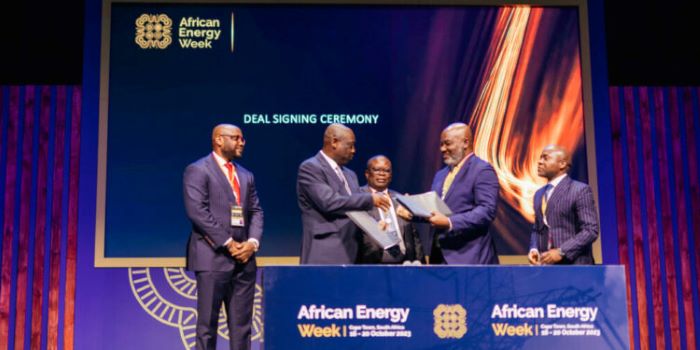(3 Minutes Read)
A significant regional energy conference began on Monday in Mombasa, Kenya, attracting more than 300 participants to discuss strengthening energy security in Eastern Africa. Organized by the Eastern Africa Power Pool (EAPP) in partnership with the World Bank, the three-day event represents a crucial milestone in enhancing energy collaboration in a region abundant in renewable resources but facing challenges with unequal electricity access.
Kenya’s Cabinet Secretary for Energy and Petroleum, Opiyo Wandayi, commended progress in regional energy interconnectivity in his address. He underscored the completion of a critical 400-kilovolt transmission line linking Kenya with Tanzania, a project designed to facilitate the bilateral exchange of electricity and tap into Kenya’s burgeoning renewable energy sector. “This infrastructure enables Tanzania to harness Kenya’s renewable energy capacity and positions Kenya as a gateway for Ethiopia’s renewable energy potential, Wandayi remarked, stressing the importance of a competitive regional power market.
The establishment of cross-border interconnections is central to the EAPP’s strategy, allowing member states to optimise indigenous energy resources and enhance resilience in their power systems. Okaasai Opolot, chairperson of the EAPP Council of Ministers and Uganda’s Minister of State for Energy, highlighted the transformative impact of a unified energy market on Eastern Africa’s socio-economic fabric. The benefits of shared infrastructure extend beyond governments; citizens and businesses will gain access to more reliable, affordable, and sustainable electricity, he reiterated the potential for integrating solar, wind, geothermal, and hydroelectric resources.
Erik Fernstrom, a senior official from the World Bank, stressed the necessity of harmonising national and regional energy regulations. Efforts to align regulatory frameworks are pivotal for the seamless transition to a single market, he noted, adding that shared markets incentivise investments in renewable energy while promoting sustainable economic growth.
Read Also:
The conference arrives at a time when Eastern Africa is grappling with the dual challenge of expanding energy access and transitioning towards greener energy systems. The region boasts significant renewable energy potential but remains constrained by fragmented policies and infrastructure gaps. The ongoing discourse in Mombasa is expected to chart a roadmap for integrating these diverse resources, leveraging advancements in technology and cross-border partnerships.
This collaborative initiative is seen as a critical pathway to achieving long-term energy security and stability, reducing reliance on fossil fuels, and fostering socio-economic progress across the region. As deliberations continue, the emphasis remains firmly on actionable outcomes that will bridge existing divides and set the stage for a sustainable energy future.





